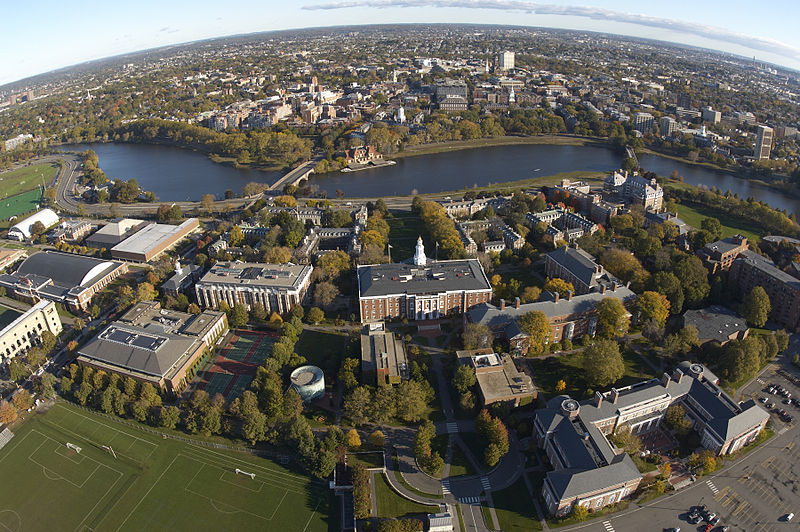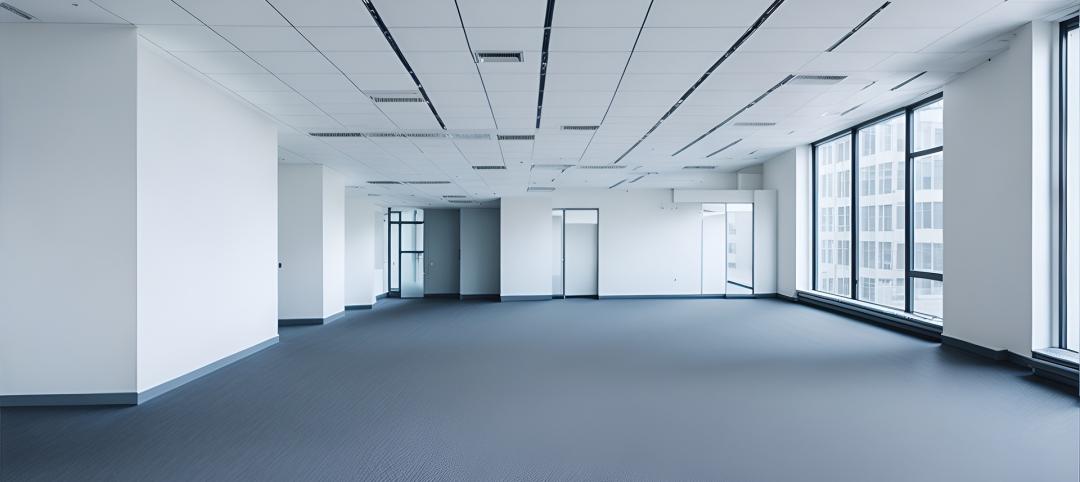Harvard Business School (HBS) announced that it would build a significant new structure on the School’s Boston campus, where HBS can harness the energy and creativity of the thousands of students, faculty, alumni, and leaders of all kinds who convene there each year. Expected to open in 2018, the facility will combine the elements of a large-scale conference center, a performance space, and an intimate community forum.
The new building will be named Klarman Hall in recognition of a generous gift from Seth and Beth Klarman. Seth Klarman (MBA 1982) is president and CEO of The Baupost Group, a Boston-based investment management firm. His wife, Beth Klarman, is president of the Klarman Family Foundation. Both are also members of the Business School’s Board of Dean’s Advisors.
In discussing their inspiration for the gift, Mr. Klarman noted that Harvard Business School has a unique capacity to contribute to the public dialogue about effective and responsible management.
“When you bring people with talent, vision, and ambition together in a space designed specifically to facilitate connections, conversation, and debate, the potential for transformative ideas and action is limitless,” said Mr. Klarman. “Beth and I believe game-changing innovations will emerge from this space. HBS has played an important and ongoing role in my life and it’s a privilege to able to give back to a school that has given us so much.”
Harvard Business School hosts some 700 events a year ranging in nature from research conferences to symposia to cultural events. Tens of thousands participate. Its residential campus is a place where learning happens not just in the classroom but also over meals, in the hallways, and in common areas throughout the campus. As the School’s renowned case method of discussion-based learning demonstrates, HBS is a place where frank conversations can lead to consensus and ultimately, action.
Noted HBS Dean Nitin Nohria, “With this wonderful gift, the Klarmans enable us to bring together leaders—in academia, in business, and in policy—in a world-class way to spur not just dialogue but action. We know that if we can create a gathering place of high functionality and high purpose, and if we leverage our convening power within that space, we can significantly affect the public debate about issues that are of the greatest importance to people at this School, in this country, and around the globe. All this is in keeping with Harvard Business School’s mission of educating leaders who make a difference in the world.”
"Through their efforts in business, their engagement in their community, and their involvement in philanthropy and charitable work, Beth and Seth Klarman have set the highest possible standard for those who want to dedicate their resources, as they have stated, to 'the service of society's greatest challenges,'" said Harvard University President Drew Gilpin Faust. "Their generosity will make lasting marks at Harvard and beyond. We are grateful to them for this magnificent gift and for what it will do to enhance the educational experiences of future generations of students, faculty, and leaders who will gather at Harvard Business School to exchange ideas and have an impact on scholarship and society."
To be located next to the Spangler Center at HBS, Klarman Hall will be designed by Boston-based William Rawn and Associates, architects of the recently opened Tata Hall, as a vibrant space with an eye toward flexibility, adaptability, and accessibility.
“Given the wide range of events and gatherings that will take place in Klarman Hall, it’s imperative that the space be able to support, complement, and facilitate activities both big and small,” said Rawn. “We are drawing inspiration and insight from places that feature the world’s greatest thinkers, leaders, and performers and trying to bring those elements together in one place. At this point, “he continued, “we know that the new facility will almost certainly combine an outstanding core auditorium with smaller breakout spaces of appropriate quantity and quality. Given the speed of change, the structure will certainly be designed to accommodate technologies that haven’t even been imagined yet. My colleagues and I are all honored and excited to be a part of this important project.”
Klarman Hall will feature:
- State-of-the-art technology enabling connections with scholars and thought leaders around the world;
-
Stage and backstage capacity, acoustics, and equipment for spoken-word events, films, and cultural events;
-
A multipurpose foyer; and
-
Pre-function reception space.
HBS has established LEED Gold as the campus standard and currently has seven-LEED certified buildings on campus.
“Thanks to the generosity of Beth and Seth Klarman,” said John Hess (MBA 1977), chairman of the current HBS Capital Campaign, “Harvard Business School will continue to be a leader for many years to come in bringing people together to discuss and advance important and innovative ideas that will have an impact on business and society. We are deeply appreciative of their faith in the School and Dean Nohria’s leadership and will do all we can to fulfill the dream that this gift makes possible.”
Related Stories
Adaptive Reuse | Sep 12, 2024
White paper on office-to-residential conversions released by IAPMO
IAPMO has published a new white paper titled “Adaptive Reuse: Converting Offices to Multi-Residential Family,” a comprehensive analysis of addressing housing shortages through the conversion of office spaces into residential units.
Mixed-Use | Sep 10, 2024
Centennial Yards, a $5 billion mixed-use development in downtown Atlanta, tops out its first residential tower
Centennial Yards Company has topped out The Mitchell, the first residential tower of Centennial Yards, a $5 billion mixed-use development in downtown Atlanta. Construction of the apartment building is expected to be complete by the middle of next year, with first move-ins slated for summer 2025.
Healthcare Facilities | Sep 9, 2024
Exploring the cutting edge of neuroscience facility design
BWBR Communications Specialist Amanda Fisher shares the unique considerations and challenges of designing neuroscience facilities.
Office Buildings | Sep 6, 2024
Fact sheet outlines benefits, challenges of thermal energy storage for commercial buildings
A U.S. Dept. of Energy document discusses the benefits and challenges of thermal energy storage for commercial buildings. The document explains how the various types of thermal energy storage technologies work, where their installation is most beneficial, and some practical considerations around installations.
Office Buildings | Sep 5, 2024
Office space downsizing trend appears to be past peak
The office downsizing trend may be past its peak, according to a CBRE survey of 225 companies with offices in the U.S., Canada, and Latin America. Just 37% of companies plan to shrink their office space this year compared to 57% last year, the survey found.
University Buildings | Sep 4, 2024
UC San Diego’s new Multidisciplinary Life Sciences Building will support research and teaching in both health and biological sciences
The University of California San Diego has approved plans for a new Multidisciplinary Life Sciences Building, with construction starting this fall. The 200,000-sf, six-level facility will be the first building on the UC San Diego campus to bridge health science research with biological science research and teaching.
Codes and Standards | Sep 3, 2024
Atlanta aims to crack down on blighted properties with new tax
A new Atlanta law is intended to crack down on absentee landlords including commercial property owners and clean up neglected properties. The “Blight Tax” allows city officials to put levies on blighted property owners up to 25 times higher than current millage rates.
Resiliency | Sep 3, 2024
Phius introduces retrofit standard for more resilient buildings
Phius recently released, REVIVE 2024, a retrofit standard for more resilient buildings. The standard focuses on resilience against grid outages by ensuring structures remain habitable for at least a week during extreme weather events.
Construction Costs | Sep 2, 2024
Construction material decreases level out, but some increases are expected to continue for the balance Q3 2024
The Q3 2024 Quarterly Construction Insights Report from Gordian examines the numerous variables that influence material pricing, including geography, global events and commodity volatility. Gordian and subject matter experts examine fluctuations in costs, their likely causes, and offer predictions about where pricing is likely to go from here. Here is a sampling of the report’s contents.
Adaptive Reuse | Aug 29, 2024
More than 1.2 billion sf of office space have strong potential for residential conversion
More than 1.2 billion sf of U.S. office space—14.8% of the nation’s total—have strong potential for conversion to residential use, according to real estate software and services firm Yardi. Yardi’s new Conversion Feasibility Index scores office buildings on their suitability for multifamily conversion.

















